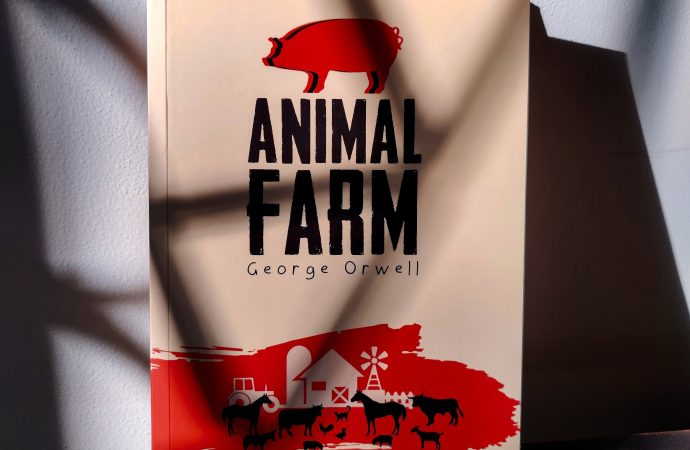George Orwell’s Animal Farm is a classic novel that tells the story of a group of farm animals who rebel against their human owner and establish their own society. The novel was first published in 1945, just after the end of World War II, and was immediately recognized as a powerful critique of Soviet Russia
George Orwell’s Animal Farm is a classic novel that tells the story of a group of farm animals who rebel against their human owner and establish their own society. The novel was first published in 1945, just after the end of World War II, and was immediately recognized as a powerful critique of Soviet Russia and its leader, Joseph Stalin.
Orwell was a socialist himself, but he was deeply critical of the way that socialist ideals were being twisted and corrupted by Stalin and the Soviet regime. In Animal Farm, he uses a group of farm animals to symbolize the Russian Revolution and the rise of Stalinism. The novel is a warning about the dangers of totalitarianism and the need to remain vigilant against the abuse of power.
The story begins with the animals on Manor Farm, led by the pigs, overthrowing their human owner and establishing their own society. At first, everything seems to be going well, with the animals working together to build a new, fairer society. The pigs, who are the most intelligent animals, take on the leadership role, and they create a set of commandments that are meant to guide the animals in their new society.
However, over time, the pigs become increasingly authoritarian and corrupt. They rewrite the commandments to suit their own interests, and they use their intelligence to manipulate the other animals. They also ally themselves with the neighboring human farmers, despite the fact that they had originally been opposed to human exploitation.
The climax of the novel comes when the pigs, led by the ruthless Napoleon, turn on their former ally, the pig Snowball, and drive him out of the farm. From there, the pigs become more and more tyrannical, using propaganda, violence, and intimidation to maintain their power.
Orwell’s message in Animal Farm is clear: power corrupts, and absolute power corrupts absolutely. He is warning against the dangers of totalitarianism and the need to remain vigilant against the abuse of power. The novel is also a critique of Stalinism and the way that socialist ideals were perverted by the Soviet regime.
One of the most powerful aspects of Animal Farm is the way that Orwell uses animals to symbolize human beings. The pigs, for example, represent the ruling class, while the other animals represent the working class. This device allows Orwell to explore complex political ideas in a way that is accessible and engaging.
Animal Farm is also notable for its use of language. Orwell was a master of language, and in Animal Farm, he uses simple, clear prose to convey complex ideas. The novel is full of memorable phrases and slogans, such as “All animals are equal, but some animals are more equal than others.”
In conclusion, Animal Farm is a powerful critique of Soviet Russia and a warning against the dangers of totalitarianism. It is a timeless novel that remains relevant today, as we continue to struggle with the abuses of power and the need to remain vigilant against tyranny. Orwell’s use of animal symbolism and clear, simple language make the novel accessible and engaging, while its message is profound and enduring.

















Leave a Comment
Your email address will not be published. Required fields are marked with *